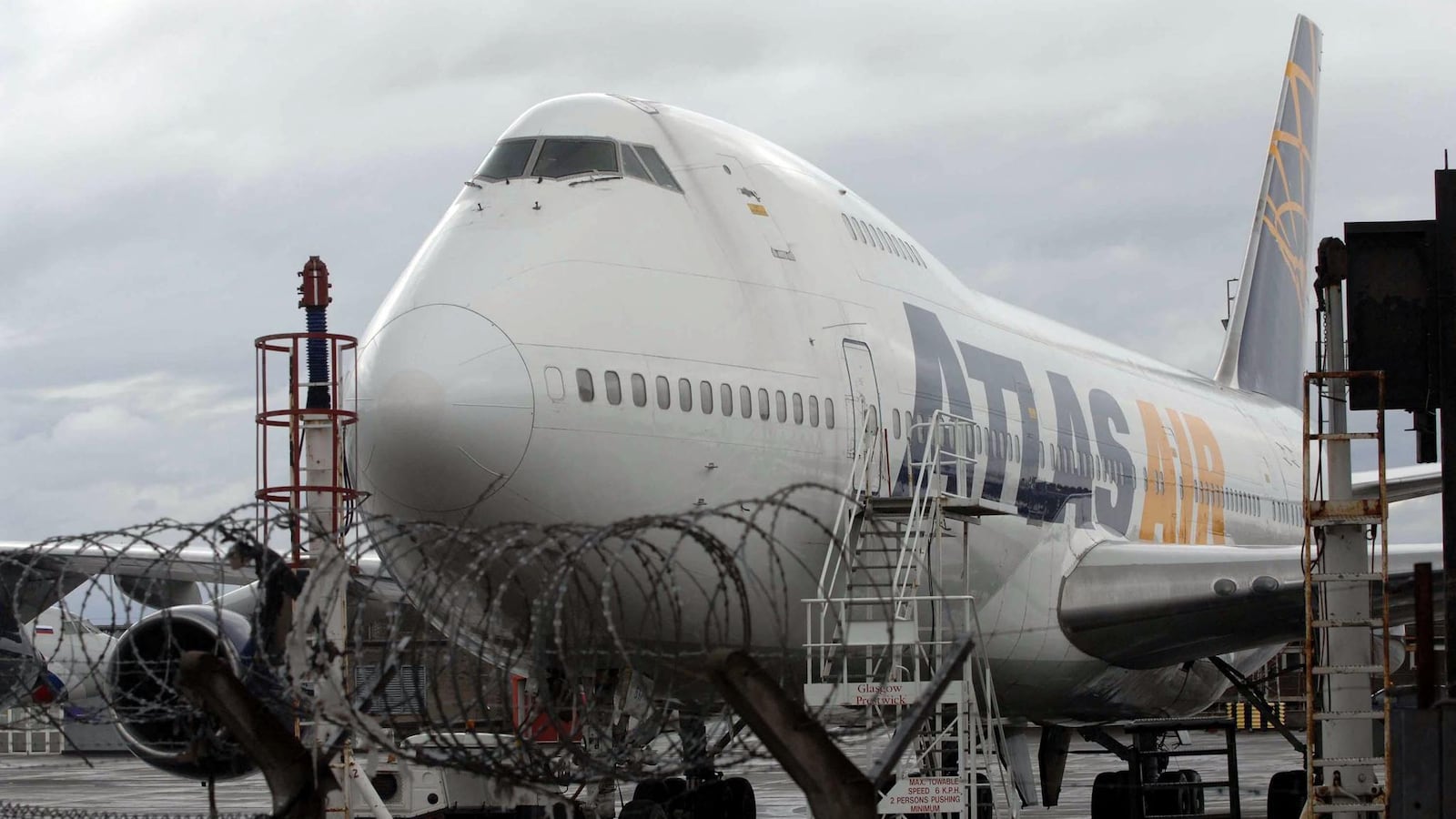A Boeing 747 cargo plane was forced to turn back to Miami International Airport on Thursday night when an engine failed shortly after takeoff, according to the Federal Aviation Administration.
The Atlas Air jumbo jet “experienced #2 engine failure and returned to land,” states a Jan. 19 entry in the FAA’s Aviation Safety Information Analysis and Sharing database. “Post flight inspection revealed a softball size hole above #2 engine.”
“We can confirm that Flight 5Y095, a 747-8 cargo aircraft… landed safely after experiencing an engine malfunction soon after departure from Miami International Airport (MIA),” an Atlas Air spokesperson said in an emailed statement. “The crew followed all standard procedures and safely returned to MIA. At Atlas, safety is always our top priority and we will be conducting a thorough inspection.”
In a separate email, a Boeing spokesman referred The Daily Beast to GE Aviation, the engine’s manufacturer, and said, “We are supporting our customer and will support the NTSB investigation into this incident.”
GE Aviation did not immediately respond to a request for comment.
The Atlas Air plane was headed to Luis Muñoz Marin International Airport in Puerto Rico when the engine failure occurred. A witness on the ground told the Associated Press that the 747 was “shooting sparks” as it made a “big, wide, swerving turn” toward MIA and she wondered if it was going to explode or fall out of the sky.
“Mayday, mayday...We have an engine fire,” the flight crew radioed to air traffic controllers, according to audio first obtained by NBC Miami. “Request access back to the airport. No, we’ll go ahead and land. We have five souls onboard.”
No injuries were reported, according to FAA data.
White Plains, New York-based Atlas Air was founded in 1992, operates “the world’s largest fleet of Boeing 747 freighter aircraft,” and also leases 777, 767, and 737s to commercial customers for cargo and passenger flights, according to the company’s website. Atlas Air “maintains an industry best-practice Safety program meeting all FAA, ICAO and IATA standards,” the company says. “Atlas Air was among the aviation industry leaders participating in pilot Safety Management System (SMS) programs before they were required.”
It is unclear what flight 5Y095 was hauling Thursday night, but Atlas operates some 60,000 flights each year to destinations across the globe, according to corporate materials. Its customers include the U.S. military, Amazon, FedEx, Samsung, and the National Football League, and its aircraft carry everything from pharmaceuticals to livestock to fresh flowers to drilling equipment.
Boeing has been under scrutiny over safety concerns with its airplanes in recent years. The entire 737 Max fleet was grounded in 2019 after a series of deadly crashes linked to a software issue that affected the aircraft’s anti-stall system and forced it into an unwanted dive. Last month, Boeing told airlines to check all 737 Max aircraft for loose bolts in their rudder-control systems, following the discovery of a missing nut in a linkage mechanism by an unnamed international airline. In early January, a door plug blew out aboard an in-flight Alaska Airlines 737 Max 9, prompting an emergency landing in Portland, Oregon.
The FAA subsequently grounded all 171 737 Max 9 aircraft in domestic service, and is “now investigating Boeing’s manufacturing practices and production lines, including those involving subcontractor Spirit AeroSystems, bolstering its oversight of Boeing, and examining potential system change,” the agency said on Wednesday.
“All 737-9 MAX aircraft with door plugs will remain grounded pending the FAA’s review and final approval of an inspection and maintenance process that satisfies all FAA safety requirements,” the statement read. “Once the FAA approves an inspection and maintenance process, it will be required on every grounded 737-9 MAX prior to future operation. The safety of the flying public, not speed, will determine the timeline for returning these aircraft to service.”






